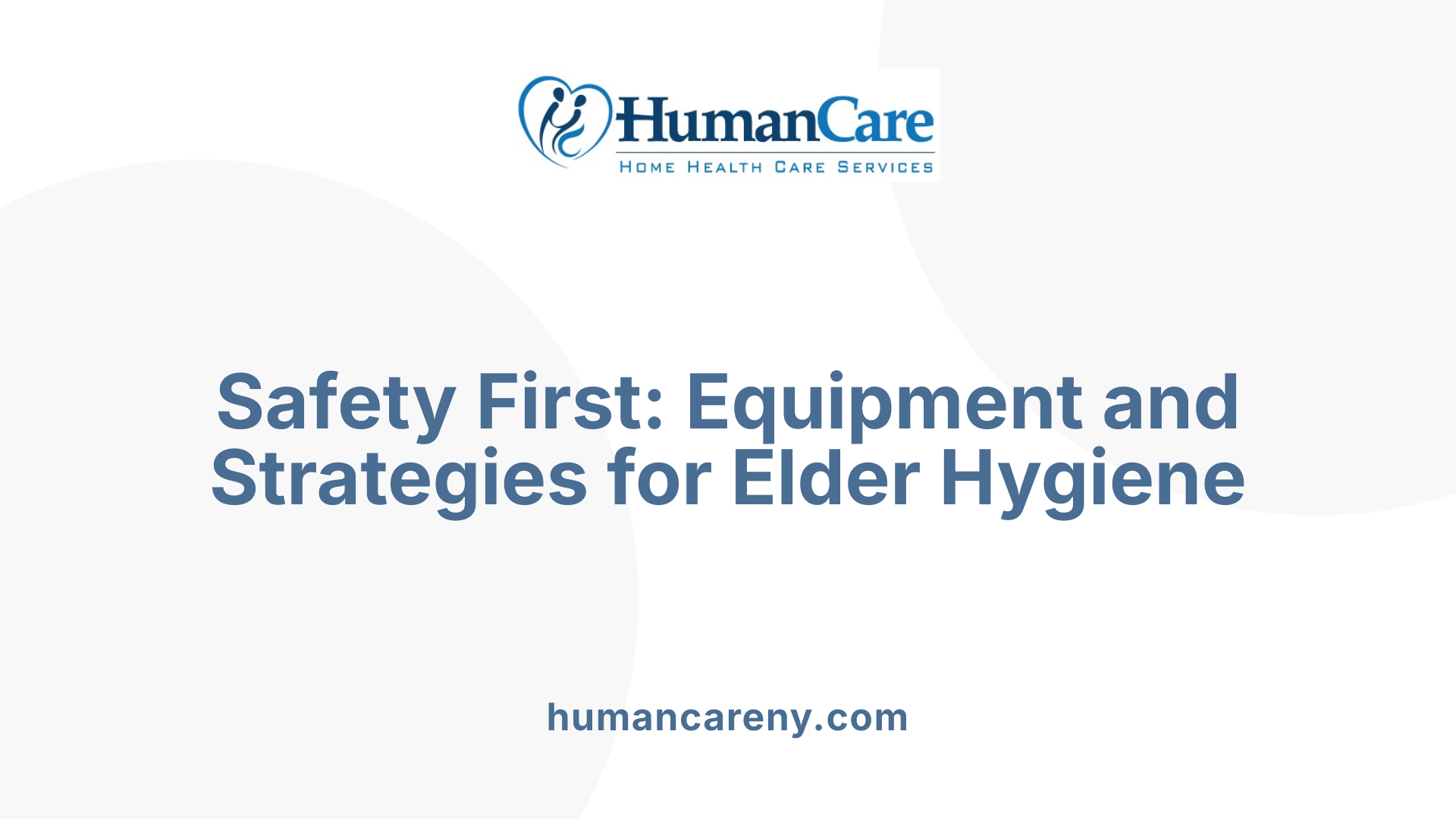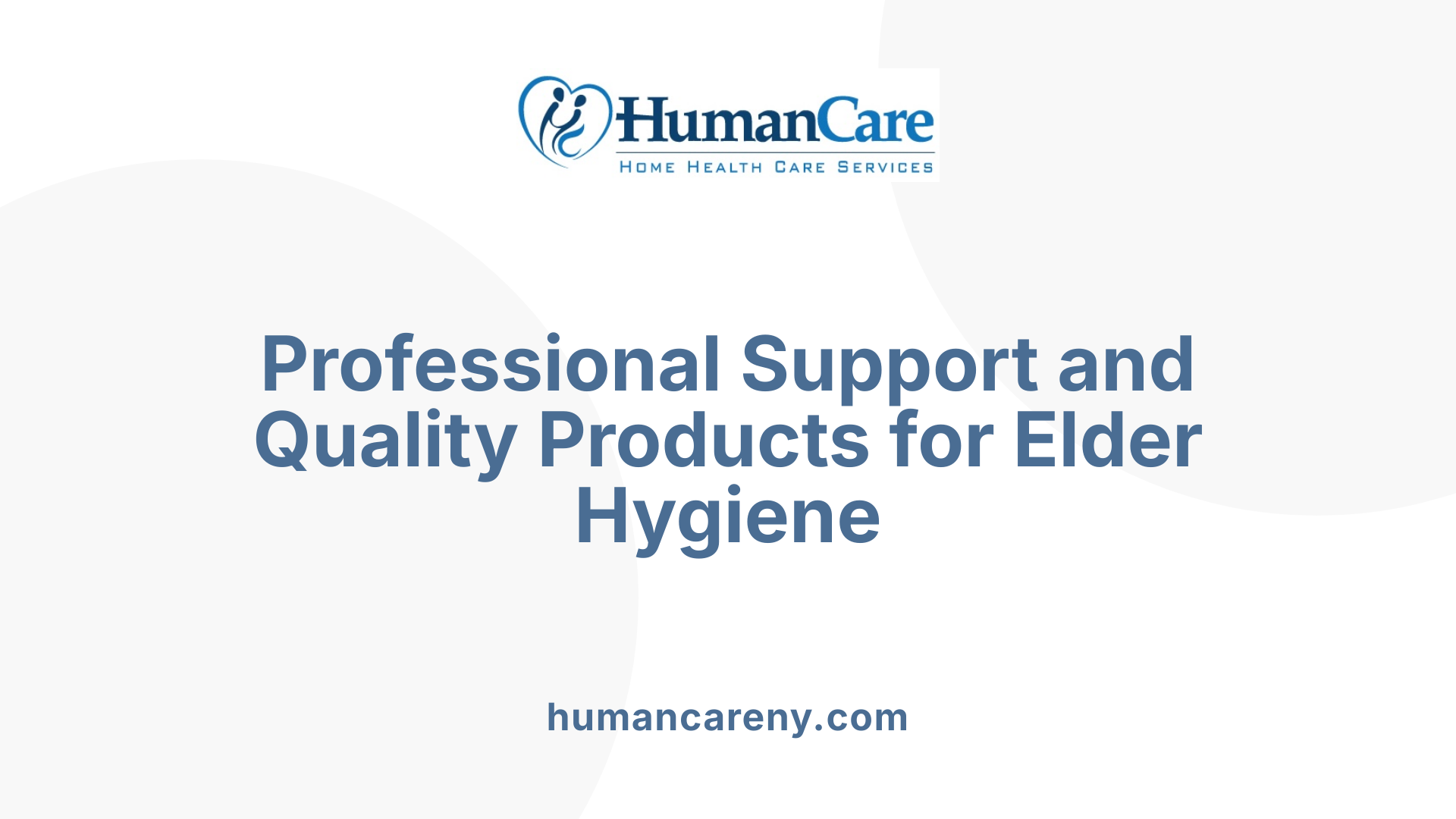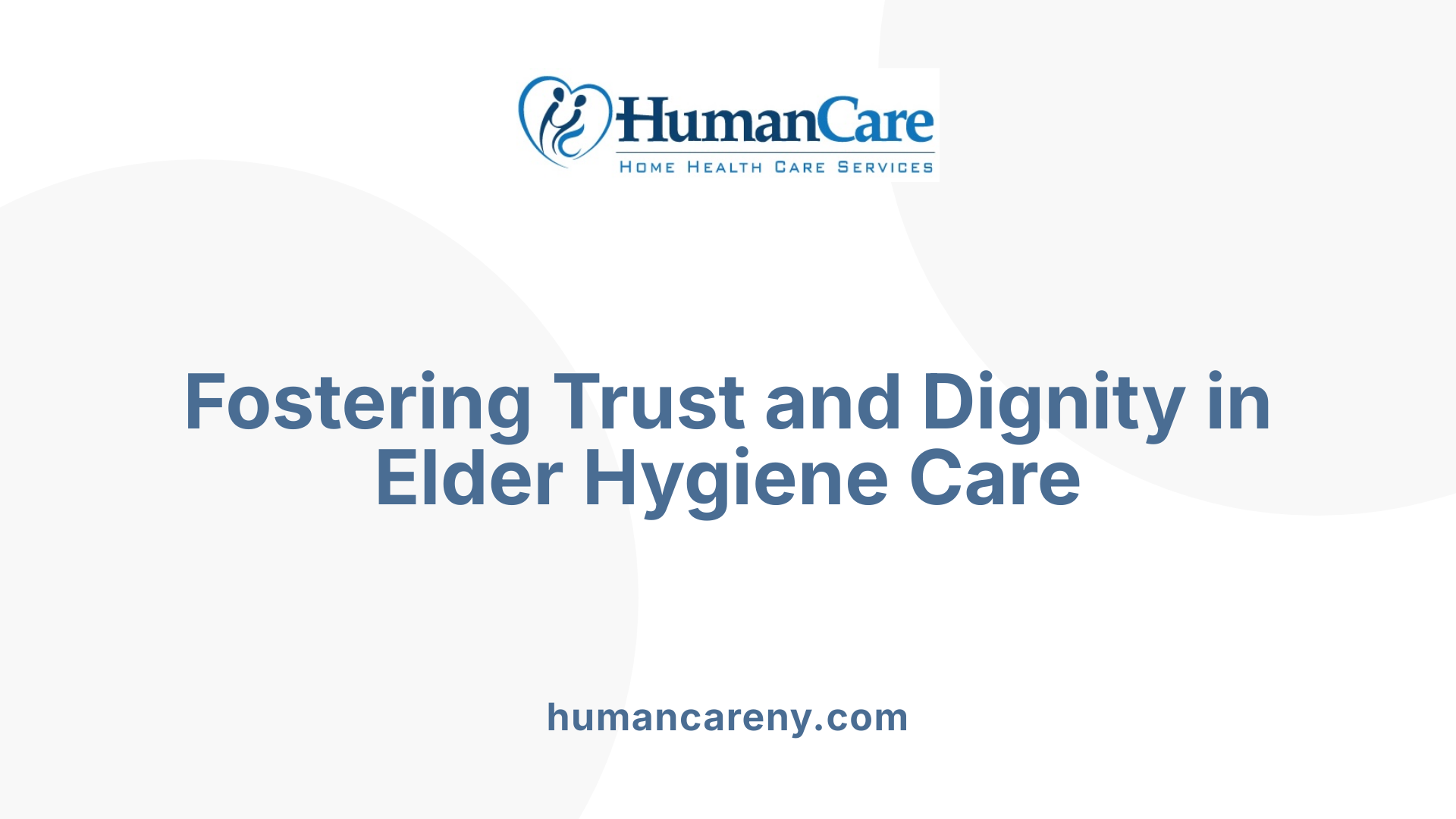The Integral Role of Companion Care in Senior Hygiene
Maintaining personal hygiene is a cornerstone of healthy aging, significantly impacting physical health, self-esteem, and overall quality of life. For seniors, especially those facing mobility, cognitive, or sensory challenges, regular hygiene routines can become difficult without assistance. Companion care offers a vital support system, ensuring that elderly individuals remain clean, comfortable, and dignified while fostering independence and emotional well-being.
Key Personal Hygiene Activities Supported by Companion Care
What are the key personal hygiene activities supported by companion care for seniors?
Companion care for seniors plays a crucial role in helping maintain essential personal hygiene activities that are vital for their health, comfort, and dignity. These activities include bathing, grooming, oral hygiene, nail and foot care, and toileting.
Bathing assistance is often necessary to ensure safety and thorough cleanliness. Caregivers help seniors with bathing or showering by setting up safe environments, such as using grab bars, non-slip mats, and bath seats to prevent falls and accidents. They assist with washing hair, rinsing, and drying, supporting the senior through gentle, respectful help.
Grooming tasks, including hair care and dressing, promote a neat appearance and can boost self-confidence. Caregivers support seniors in brushing hair, trimming nails, and selecting comfortable, suitable clothing.
Oral hygiene is equally important. Caregivers encourage regular brushing, flossing, and dental checkups to prevent gum disease, tooth decay, and oral infections. For seniors with dentures, proper cleaning and fitting help maintain comfort and oral health.
Nail and foot care contribute to overall comfort and mobility. Caregivers assist with trimming nails, washing, moisturizing feet, and checking for signs of infections or issues such as fungal problems.
Toileting and incontinence management involve discreet support, changing soiled clothing and incontinence products, and maintaining skin hygiene to prevent irritations or infections. Proper incontinence care helps preserve dignity and reduce the risk of urinary tract infections.
Through these activities, companion care helps seniors stay clean, comfortable, and independent, which significantly reduces health risks associated with poor hygiene, including skin infections and medical complications.
How can caregivers support seniors in maintaining their personal hygiene?
Support from caregivers involves more than just assistance; it requires kindness, patience, and respect for the senior’s privacy and autonomy. They help implement daily routines like handwashing after using the toilet, washing the face, and cleaning the genitals and bottom with gentle, respectful techniques.
Caregivers encourage regular bathing, ideally at least twice weekly, tailoring routines to the senior’s preferences and comfort levels. Safety measures such as grab rails, non-slip mats, and appropriate bathing aids are essential to prevent falls and accidents.
Maintaining dignity is paramount. Caregivers should use gentle, familiar products, and involve seniors in choosing their hygiene routines whenever possible to promote independence.
For seniors facing mobility challenges or cognitive impairments, personalized strategies such as bed baths, clear explanations, and reassurance help make hygiene routines less stressful. Moreover, seeking support from health services can provide additional aids, training, or professional care when needed.
Ultimately, supporting elderly personal hygiene requires a compassionate approach, understanding individual needs, and creating a safe, respectful environment that encourages regular self-care activities while providing assistance where necessary.
More information
For further insights on elderly hygiene support, explore search terms like ‘Personal hygiene activities supportive by companion care for elderly,’ ‘senior hygiene assistance,’ ‘elder care hygiene routines,’ and ‘benefits of companion care in hygiene maintenance.’
Maintaining good personal hygiene is essential for physical health, emotional well-being, and social participation among seniors. It helps prevent infections, reduces body odor, and boosts self-esteem, improving overall quality of life. Proper support and routine management can significantly ease the challenges that aging brings to personal hygiene maintenance, fostering independence and dignity for seniors.
| Activity | Description | Support Methods |
|---|---|---|
| Bathing/Showering | Removing dirt, germs, and sweat | Safety aids, privacy, gentle assistance |
| Grooming (Hair/Clothing) | Maintaining appearance and comfort | Hair washing, dressing help, grooming |
| Oral Hygiene | Preventing gum disease, decay | Brushing, flossing, denture care |
| Nail & Foot Care | Preventing infections, pain | Trimming, moisturizing, skin checks |
| Toileting & Incontinence | Maintaining skin integrity | Discreet support, changing, hygiene |
This comprehensive support enables seniors to enjoy cleaner, healthier lives while maintaining dignity and independence.
Safety Strategies and Equipment in Elder Hygiene Support

What strategies do caregivers use to help seniors maintain hygiene safely and effectively?
Caregivers adopt personalized approaches to ensure elderly individuals perform hygiene routines safely and comfortably. These strategies include creating tailored hygiene plans based on the senior’s health condition, preferences, and cultural background. Such plans often encompass assistance with bathing, grooming, oral care, and skin monitoring.
To reduce the risk of falls or injuries, caregivers install safety aids like grab bars, nonslip mats, and accessible shower chairs. They also select supportive tools such as handheld shower heads and no-rinse cleansers to make bathing easier.
Maintaining the senior’s dignity and encouraging independence are core to effective elder hygiene support. Caregivers expedite tasks when seniors are unable to perform them fully, while empowering them to do as much as possible. They follow strict infection control protocols, communicate respectfully to ease anxiety, and routinely monitor hygiene practices with supportive technology or cues.
These measures foster a safe environment where seniors can maintain their hygiene routines without fear of injury or embarrassment, leading to better health and emotional well-being.
The Impact of Professional Care and Appropriate Products

Why is professional elder care important for maintaining hygiene?
Professional elder care plays a crucial role in maintaining the hygiene of seniors, especially as they face physical, cognitive, or sensory challenges due to aging. Trained caregivers offer specialized assistance tailored to each senior's individual needs, ensuring routines such as bathing, grooming, oral hygiene, and skin care are performed safely and effectively. This reduces risks of falls, skin infections, and other health complications.
Moreover, caregivers help preserve seniors' dignity and self-esteem by respecting their privacy and preferences, which can boost mental well-being. Regular hygiene routines also help in early detection of health issues, such as unusual skin lesions or infections, allowing prompt medical intervention.
Maintaining good hygiene through professional support supports overall health, longevity, and quality of life. It also combats social isolation caused by body odor or appearance-related concerns, contributing to a happier, healthier aging process.
What are some essential hygiene products for the elderly?
A variety of hygiene products are vital for seniors to maintain cleanliness, comfort, and safety. These include gentle skin cleansers, moisturizers designed for aging skin, and soft toothbrushes to support oral health.
For bathing, easy-to-use items such as bathing wipes, no-rinse shampoo caps, and electric or manual shower aids facilitate independence and reduce discomfort.
Managing incontinence effectively requires disposable or reusable adult diapers, absorbent bed pads, and barrier creams like rash ointments, which help prevent skin irritation.
Assistive devices such as long-handled brushes, dressing hooks, and grab bars make grooming and dressing safer and more manageable. These products collectively help seniors stay clean and maintain their dignity with greater independence.
| Product Type | Purpose | Additional Details |
|---|---|---|
| Skin cleansers & moisturizers | Gentle daily skin care, prevent dryness and irritation | Formulated for sensitive aging skin |
| Oral hygiene tools | Maintain dental health, prevent gum disease | Includes electric toothbrushes, flossing aids |
| Bathing aids | Facilitates safe bathing and washing | Shower chairs, slip-resistant mats |
| Incontinence products | Manage bladder or bowel control issues | Diapers, pads, skin barrier creams |
| Safety accessories | Reduce fall risk during hygiene routines | Grab bars, hand-held showers, rails |
Effective use of these products, combined with professional guidance, ensures seniors can manage their hygiene comfortably, safely, and with dignity.
Emotional and Social Impact of Hygiene Support

Building trust through compassionate care
Providing personal hygiene assistance to seniors is not merely about cleanliness; it’s a vital part of nurturing trust and fostering emotional security. Caregivers who approach hygiene routines with patience, respect, and empathy create a supportive environment where seniors feel valued and respected. Respecting individual preferences, cultural sensitivities, and privacy rights helps seniors maintain their dignity. When caregivers obtain consent before assisting, they show respect for the person's autonomy, which enhances trust.
Using appropriate adaptive tools and products like grab bars, shower chairs, or no-rinse cleansers can make routines more comfortable and less intimidating. Supportive interactions that consider the senior’s comfort and preferences promote a sense of safety and reassurance. Addressing any resistance or discomfort with gentle persistence helps create a calm environment, which positively impacts emotional well-being.
Enhancing self-esteem and dignity
Maintaining personal hygiene is closely linked to how seniors perceive themselves. When caregivers assist with grooming, toiling, and bathing in a respectful and dignified manner, it reinforces a senior’s sense of self-worth. Personal grooming activities are opportunities to affirm the individual’s identity, appearance, and independence.
Encouraging seniors to participate in their hygiene routine whenever possible nurtures their sense of control and autonomy. When they are supported in maintaining their routines with dignity, seniors often feel more confident and positive about themselves. This boost in self-esteem can lead to increased social participation and a more optimistic outlook on life.
Reducing feelings of shame or embarrassment
Many seniors experience feelings of shame or embarrassment related to incontinence, mobility limitations, or changes in appearance. Compassionate hygiene support helps to reduce these feelings by normalizing routine care and emphasizing respect and discretion.
Caregivers' gentle and non-judgmental approach reassures seniors that their health and comfort are priorities, not sources of shame. Maintaining confidentiality, using discreet techniques during hygiene tasks, and involving seniors in decisions about their care help preserve their dignity.
This respectful approach fosters an environment where seniors feel safe, valued, and less likely to withdraw socially or emotionally. Ultimately, the emotional benefits of supportive hygiene routines are reflected in improved mental health, higher self-esteem, and better overall quality of life.
| Aspect | Description | Impact |
|---|---|---|
| Trust Building | Compassionate, respectful care | Fosters safety and security |
| Self-esteem | Involving seniors in routines, affirming appearance | Promotes confidence and independence |
| Reducing Embarrassment | Discreet, dignified assistance | Enhances comfort and emotional well-being |
| Emotional Well-being | Supportive environment | Encourages social engagement and happiness |
Understanding the emotional and social dimensions of hygiene support emphasizes its importance beyond physical cleanliness. It is a fundamental aspect of holistic elder care, empowering seniors to maintain their dignity, independence, and emotional health.
Holistic Approach and Tips for Effective Elder Hygiene Support

What strategies do caregivers use to help seniors maintain hygiene safely and effectively?
Caregivers employ individualized and systematic approaches to ensure seniors maintain proper hygiene safely. They develop personalized routines based on each elder’s health, preferences, and cultural background. Tasks like bathing, teeth cleaning, skin monitoring, and toileting are performed with gentle techniques and suitable products to avoid skin irritation and infections.
Safety equipment plays a crucial role. Installing grab bars, using slip-resistant mats, and choosing accessible tools such as shower chairs or handheld shower heads help prevent falls and accidents during hygiene routines. Caregivers also support seniors in doing as much as possible independently, fostering dignity and confidence.
Infection control is prioritized by applying proper hygiene protocols, including hand hygiene and equipment cleaning. Effective communication—with patience and respect—is essential, along with the use of supportive technology or tools to monitor hygiene practices and address issues proactively.
What safety and emotional considerations should be taken into account in elder hygiene support?
Safety is fundamental in elder hygiene routines. Caregivers create secure bathroom environments by installing grab bars, ensuring adequate lighting, and using non-slip mats. These measures significantly reduce the risk of falls and injuries.
Emotionally, it’s important to respect elders’ privacy and dignity. Caregivers should communicate openly, reassure, and support elders during personal care activities to diminish embarrassment and anxiety. Understanding and catering to cultural and personal preferences help make routines more acceptable.
Supporting independence whenever possible is beneficial for the elder’s mental health. Providing reassurance, using adaptive tools, and allowing elders to perform tasks at their own pace help boost their self-esteem and sense of control.
Ongoing training for caregivers and regular assessment of the elder’s evolving needs are necessary. This ensures the balance between maintaining safety, preventing infections, and offering emotional comfort, ultimately promoting a positive and respectful hygiene experience for seniors.
Promoting Dignity and Independence in Senior Hygiene
In summary, companion care plays an essential role in supporting seniors' personal hygiene, which directly impacts their health, emotional well-being, and overall quality of life. Through tailored assistance with bathing, grooming, oral care, and toileting, caregivers help maintain physical health while respecting personal preferences and dignity. Employing safety strategies and adaptive tools ensures routines are effective and risk-free. Moreover, the emotional and social benefits of companionship help reduce loneliness, boost self-esteem, and foster a sense of normalcy. Ultimately, professional and compassionate elder care not only preserves physical health but also empowers seniors to live with independence, confidence, and dignity, enriching their golden years.
References
- The Importance of Personal Hygiene for Senior Citizens
- How to Manage Personal Hygiene in Elder Care - Right at Home
- Personal Care for Seniors: 12 Professional Caregiver Tips
- The Importance of Personal Hygiene Care for the Elderly
- Does Home Health Help With Bathing? Elderly Care Guide
- Keep the skin clean with a hygiene routine - TENA US
- Personal Hygiene for Seniors - ComForCare Home Care (Tri-Valley ...
- How Elderly Companion Care Enhances Seniors' Lives
- The Role of Caregivers in Grooming and Hygiene for the Elderly



